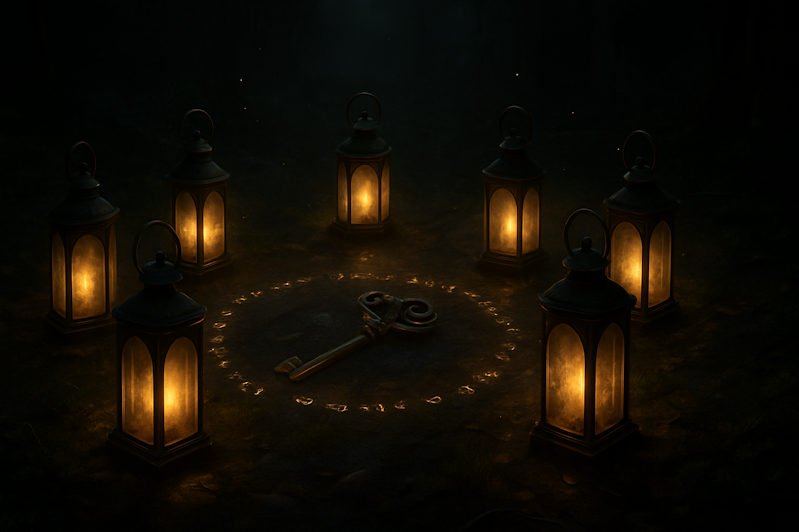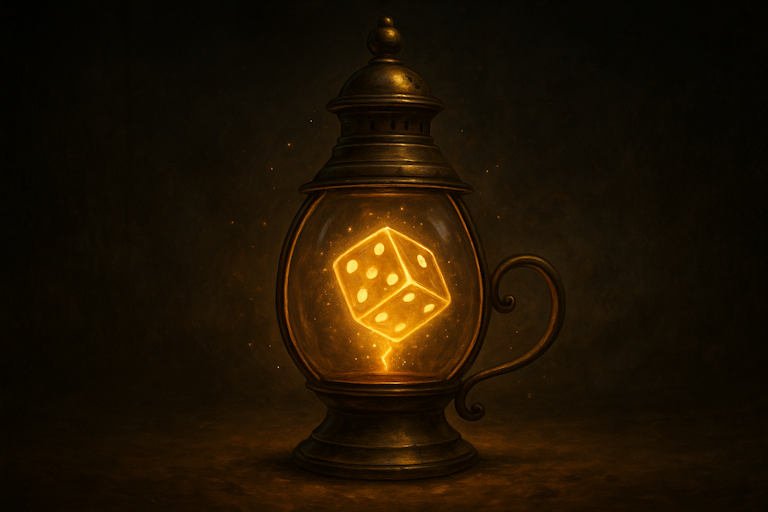
Mystery games: The hidden appeal that brings groups together (2025)
Mystery games have a unique way of pulling groups closer — not only through puzzles, but through what they reveal. Suspense does more than entertain; it acts like a mirror. In the glow of lantern light or the silence of a countdown, people begin to show sides of themselves they rarely display elsewhere.
Some lean forward, eager to confront the unknown. Others hesitate, waiting for clarity or direction. Still others weave between both, testing trust and watching how the group responds. Mystery games captivate because they strip away the ordinary and leave us exposed in moments of uncertainty.
In this article, we explore the hidden appeal of mystery games: how suspense uncovers roles, truths, and dynamics that connect a group more deeply than numbers or scores ever could.
Mystery games as the mirror
The hidden appeal of mystery games lies not only in their puzzles, but in the way they reflect the people who gather around them. A mystery is never neutral. It stirs something beneath the surface, placing the group in a shared space of tension. And when tension rises, masks begin to slip. What looked like a harmless story or a clever riddle suddenly becomes a stage where instincts, habits, and truths are revealed.
Mystery games captivate because they awaken the psychology of the unknown. Faced with suspense, some lean in, eager to confront whatever lies ahead. Others step back, waiting for certainty, unwilling to risk being wrong. Still others watch closely, scanning for details and quietly guiding the group with subtle observations. These responses are rarely planned; they arise instinctively. Yet they reveal more about a person than numbers, scores, or turns ever could.
The setting of mystery games amplifies this effect. Darkness, shadow, and unanswered questions create a backdrop that feels safe enough to explore, yet unsettling enough to stir emotion. In such moments, people show sides of themselves usually hidden in ordinary life. The friend who is quiet at the table may turn into the sharp-eyed observer who spots every clue. The confident speaker may falter when uncertainty lingers too long. Each reaction is part of the mirror the game holds up to the group.
In this way, mystery games teach something essential: how people handle uncertainty together. Do they trust one another, or do they doubt? Do they push forward boldly, or do they hesitate in silence? The answers matter less than the recognition itself. What makes mystery games powerful is that everyone shares the same suspense, and through it, the same discovery — not only of the puzzle, but of each other.
Reveal the Firefly Inn
Behind its lantern light, stories come alive.
Cross the threshold, and let the inn show you what waits beyond.

Roles in the dark
Mystery games do not assign roles — they reveal them. Suspense has a way of drawing out patterns of behavior that remain hidden in the light of everyday life. When the room grows quiet and a riddle resists the group’s efforts, certain archetypes emerge, each shaped by how a person responds to the unknown.
Some become the seekers: restless, curious, unwilling to leave a clue untouched. They push forward with questions, hoping movement itself will uncover the answer. Others step into the role of the guardians, cautious and steady, reminding the group to slow down, to test each path before committing. Then there are the weavers: those who listen and connect fragments into meaning, binding separate ideas into a coherent story.
And in every circle there are the shadows — not a single person, but a presence that lingers. Doubt, hesitation, even silence: these too are roles, shaping the flow as much as bold action does. Mystery games remind us that absence is also a kind of presence, and that the unspoken can weigh heavily on the outcome.
These roles are not fixed characters, but shifting masks that surface in response to tension. In one mystery, a traveler may be the seeker; in the next, the guardian. The power of mystery games lies in this fluidity. They let us try on different responses, step into unfamiliar patterns, and see what happens when light and shadow fall differently across the group.
By uncovering roles in this way, mystery games turn suspense into more than entertainment. They become a quiet exploration of how we move through uncertainty — individually, and together.
Reveal the Firefly Inn
Behind its lantern light, stories come alive.
Cross the threshold, and let the inn show you what waits beyond.

Hidden lessons from mystery games
Mystery games are not only about solving riddles. They carry subtle lessons that stay with groups long after the suspense has faded:
- Suspense unmasks character: Under pressure, we see who dares, who doubts, and who waits. Mystery does not create these traits; it reveals them.
- Silence is part of the story: Not every role is loud. Hesitation, doubt, or quiet observation can change the outcome as much as bold action.
- Uncertainty binds more than clarity: Clear answers close the moment. Suspense keeps people leaning in, connected by the same unanswered question.
Together, these lessons show why mystery games continue to captivate. They remind us that suspense is not only tension to be resolved, but a thread that binds groups in ways they rarely expect.

In the lantern’s glow you see the puzzle.
In the shadow, you see yourself.
From play to reflection
Mystery games are never just about puzzles. They are invitations to step into uncertainty, to let the unknown shape how we act and respond. In the moment, the goal might be to solve, to unlock, to discover. But afterwards, what lingers is not the answer itself — it is the way the group moved through the shadows together.
This is the hidden strength of mystery games: they become quiet lessons in reflection. A group may leave the table with laughter, but beneath that laughter lie traces of truth. Who took the first step? Who hesitated until the end? Who trusted a hunch, and who demanded proof? These questions stay, not as judgments, but as glimpses of how people reveal themselves when faced with the unknown.
The reflection goes deeper still. Mystery games remind us that the unknown is not something to fear, but something to engage with. Suspense is not simply tension — it is a thread that binds. When a group sits in shared uncertainty, they begin to see one another more clearly. And in that recognition lies connection.
For Lanthornkeepers, this is not theory but practice. The inn uses mystery not only to entertain, but to hold up a mirror. Each lantern, each symbol, each whisper of shadow is designed to nudge travelers into reflection. What begins as play unfolds into insight: a recognition that mystery reveals as much about us as it conceals.
Conclusion: The hidden appeal of mystery games
The true power of mystery games is not in the puzzles they contain, but in the truths they uncover. Suspense draws people in, yet what keeps them captivated is the way uncertainty reveals hidden roles, instincts, and reactions. In the glow of mystery, we see how groups move together — sometimes boldly, sometimes hesitantly, always marked by the presence of shadow.
Mystery games captivate because they act as mirrors. They remind us that in the unknown, we do not only search for answers, but also for ourselves and each other. Every hesitation, every sudden insight, every unspoken doubt becomes part of the story that connects the group.
In Lanthornkeepers, this lesson finds a home. The inn thrives on the same appeal: the balance of lantern light and shadow, the tension that exposes truths, the shared suspense that binds travelers. Mystery endures because it reveals what is hidden — and in that revelation, it forges connection.
Reveal the Firefly Inn
Behind its lantern light, stories come alive.
Cross the threshold, and let the inn show you what waits beyond.





